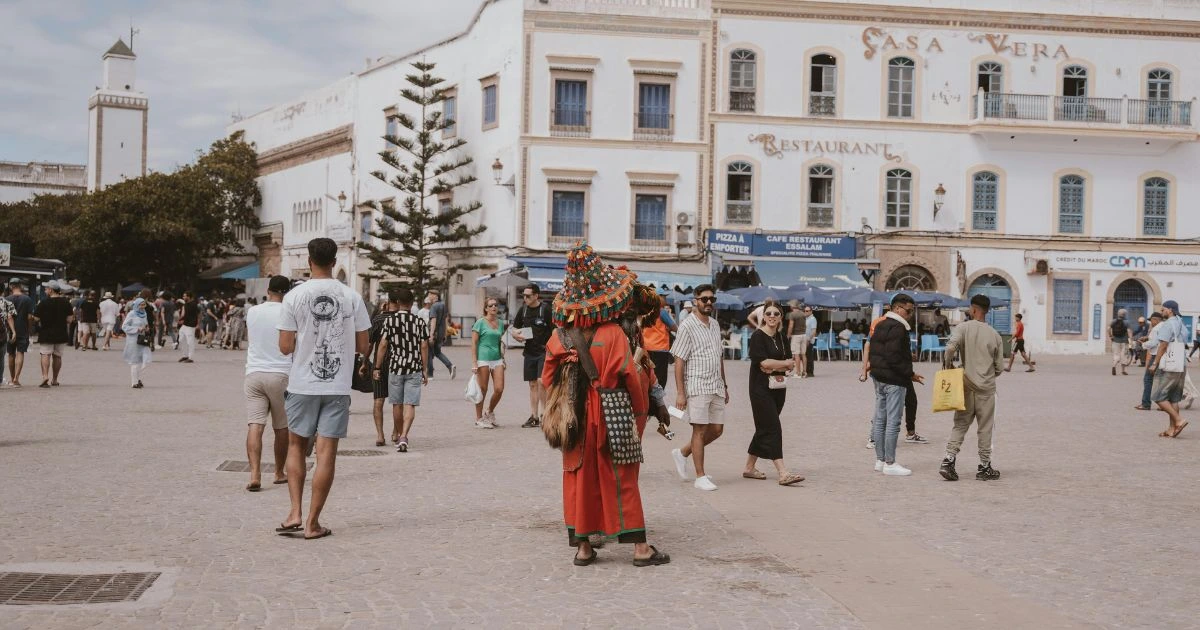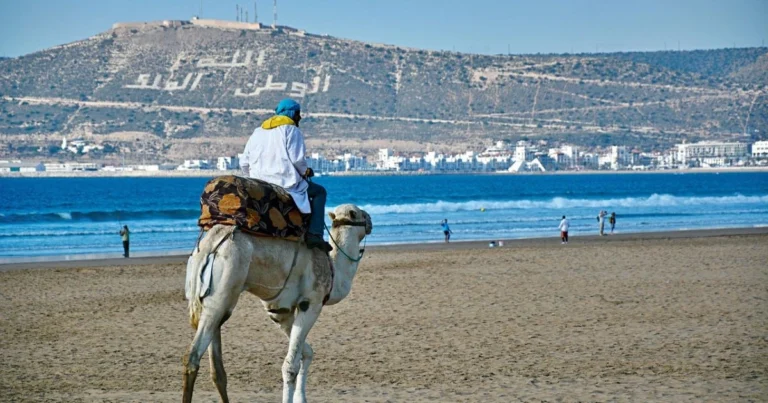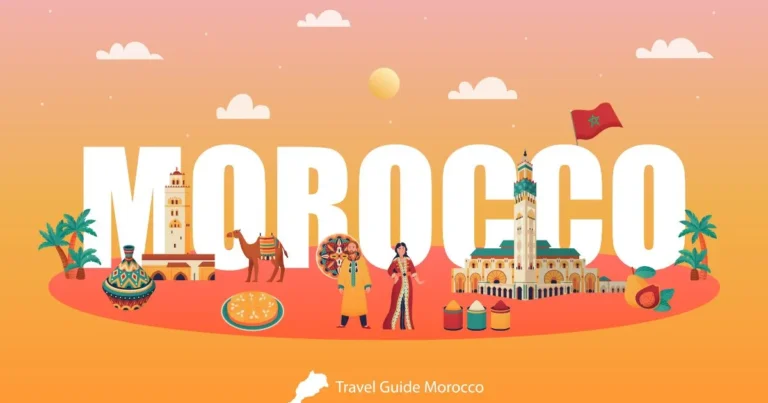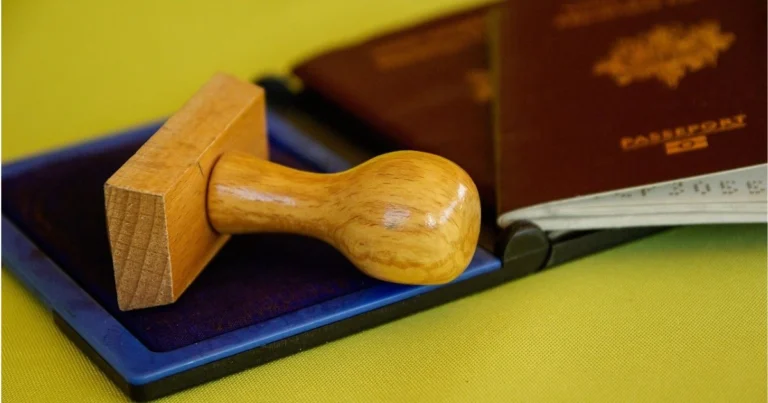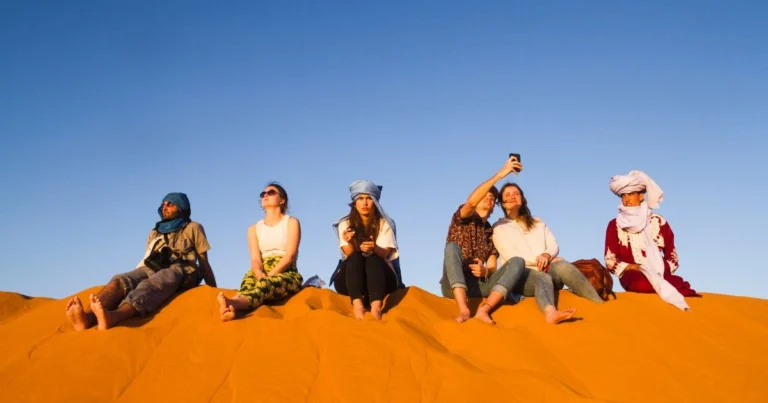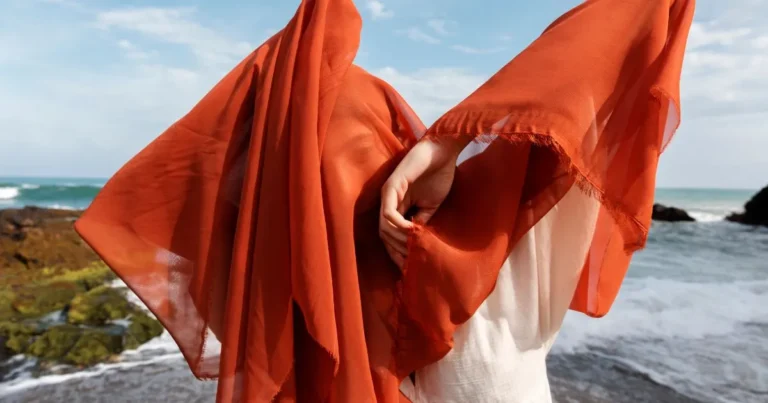Best Time to Travel to Morocco: Your Ultimate Guide to Perfect Weather and Unforgettable Experiences
Table of Contents
Best Time to Travel to Morocco
Picture this: you’re sipping mint tea in a traditional riad courtyard, the Atlas Mountains creating a dramatic backdrop against the azure sky, while the gentle desert breeze carries the distant call to prayer across the ancient medina. This magical moment could be yours in Morocco – but timing is everything when it comes to experiencing this North African gem at its finest.
The best time to travel to Morocco varies depending on your specific travel preferences and destinations. Whether you’re dreaming of camel treks across golden dunes, exploring bustling souks, or hiking mountain trails, your perfect Moroccan adventure depends on your interests, budget, and weather preferences. This comprehensive guide will help you discover the ideal timing for your journey, complete with insider tips, detailed weather data, and practical advice that goes beyond what typical travel guides offer.
From the sun-soaked beaches of Essaouira to the snow-capped peaks of the High Atlas, Morocco’s diverse landscapes and climates mean there’s truly a perfect season for every type of traveler. Let’s explore when to visit this captivating kingdom for your ultimate Moroccan experience.
Understanding Morocco’s Climate: A Land of Diverse Weather Patterns
Morocco’s geographical diversity creates a fascinating tapestry of climate zones that can dramatically influence your travel experience. Understanding these regional variations is crucial when planning your trip timing.
Climate Zones Overview
Morocco encompasses four distinct climate zones:
- Mediterranean Climate: The northern coastal areas experience gentle, rainy winters and hot, arid summers.
- Atlantic Climate: Western coastal areas experience moderate temperatures year-round with ocean influence
- Continental Desert Climate: Interior regions face extreme temperature variations with hot days and cool nights
- Mountain Climate: High Atlas and Middle Atlas regions see significant altitude-related weather changes
Regional Weather Patterns
Marrakech and Interior Cities: These inland destinations experience a semi-arid climate with scorching summers (often exceeding 100°F/38°C) and mild winters. The best month to travel to Morocco for exploring cities in these regions is usually April-May or September-November.
Fes and Northern Interior: Similar to Marrakech but slightly cooler due to higher elevation, with more pronounced seasonal variations.
Sahara Desert: Extreme temperature swings characterize this region, with blistering daytime heat in summer and surprisingly cool nights in winter.
Atlas Mountains: Alpine conditions prevail at higher elevations, with snow possible from December through March above 6,000 feet.
Coastal Areas (Casablanca, Essaouira, Agadir): Maritime influence moderates temperatures, creating pleasant conditions for most of the year.
Morocco Weather by Month: Temperature and Rainfall Data
| Month | Marrakech Avg (°F) | Coastal Avg (°F) | Desert Avg (°F) | Rainfall (inches) |
|---|---|---|---|---|
| January | 46-66 | 50-64 | 41-68 | 1.2 |
| February | 50-72 | 52-66 | 45-73 | 1.5 |
| March | 55-77 | 55-68 | 52-81 | 1.8 |
| April | 59-81 | 57-70 | 59-88 | 1.4 |
| May | 64-86 | 61-72 | 66-95 | 0.8 |
| June | 70-95 | 64-75 | 73-104 | 0.2 |
| July | 75-104 | 66-77 | 79-113 | 0.1 |
| August | 75-102 | 67-78 | 79-111 | 0.2 |
| September | 70-93 | 65-77 | 72-102 | 0.5 |
| October | 63-84 | 62-73 | 63-90 | 1.1 |
| November | 55-75 | 57-68 | 52-77 | 1.8 |
| December | 48-68 | 52-64 | 43-70 | 1.4 |
Unique Microclimates
Morocco’s diverse topography creates several notable microclimates that can affect your travel plans:
- Chefchaouen:Located in the Rif Mountains, this famous blue city has cooler temperatures and more humid conditions.
- Ouarzazate: Called the “Gateway to the Sahara,” this city faces dramatic temperature fluctuations.
- Ifrane: Dubbed “Little Switzerland,” this highland town may experience snowfall even while coastal regions remain pleasantly warm
Best Time to Visit Morocco Based on Your Interests
Beach Holidays: May Through September
Morocco’s Atlantic coastline offers some of Africa’s most beautiful beaches, and timing your visit correctly ensures optimal beach weather.
Best Coastal Cities for Beach Lovers:
- Essaouira: Perfect for windsurfing with consistent trade winds
- Agadir: Modern resort destination with reliable sunshine
- Casablanca: Urban beach experience with cultural attractions nearby
Water Temperatures and Conditions:
- May-June: Water temps 64-68°F, fewer crowds, perfect for surfing
- July-August: Warmest water (70-73°F), peak beach season, ideal for swimming
- September: Still warm (68-70°F), fewer tourists, excellent conditions
Pro Tip: Visit Essaouira in June for the annual Gnawa World Music Festival while enjoying perfect beach weather.
Desert Adventures: October Through April
The Sahara Desert represents Morocco’s most iconic landscape, but timing is crucial for a comfortable and safe desert experience.
Why These Months Are Ideal:
- Daytime temperatures remain comfortable (70-85°F) rather than scorching
- Cool nights (40-60°F) make camping under stars magical
- Clear skies provide optimal stargazing conditions
- Minimal rainfall ensures accessible desert roads
Best Desert Experiences by Season:
- October-November: Perfect transition weather, clear skies for photography
- December-February:Pleasant and mild temperatures, perfect for longer camel expeditions
- March-April: Temperatures begin to rise but remain agreeable, with potential wildflower displays following occasional rainfall
“The desert is most beautiful when the sun isn’t trying to kill you. October through April offers the perfect balance of warm days and cool nights that make the Sahara truly magical.” – Local Berber guide
City Exploration: March-May & September-November
Morocco’s imperial cities offer incredible historical and cultural experiences, but extreme summer heat can make sightseeing uncomfortable.
Shoulder Season Advantages:
- Comfortable walking temperatures (65-85°F)
- Reduced tourist crowds mean better photo opportunities
- Local markets and restaurants operate normal hours
- Hotel prices are moderate compared to peak winter season
Festival Calendar for City Visits:
| City | Festival | Best Time |
|---|---|---|
| Marrakech | Popular Arts Festival | June-July |
| Fes | Sacred Music Festival | May-June |
| Chefchaouen | Andalusian Music Festival | July |
| Meknes | Olive Festival | December |
Ramadan Considerations: If your visit coincides with Ramadan, expect modified restaurant hours and a more subdued atmosphere during daylight hours, but spectacular evening celebrations.
Hiking and Trekking: April-May & September-October
The Atlas Mountains offer some of North Africa’s best trekking opportunities, from day hikes to multi-day expeditions including Mount Toubkal, North Africa’s highest peak.
Optimal Trekking Conditions:
- April-May: Melting snow creates flowing streams, wildflowers bloom, moderate temperatures
- September-October: Stable weather after summer heat, clear mountain views, comfortable camping
Specific Trail Recommendations:
- Toubkal Circuit: Best in late April-May or September
- Ait Bouguemez Valley: Ideal March-May for almond blossoms
- Dades and Todra Gorges: Ideal in October-November for pleasant trekking conditions
Altitude Considerations: Above 8,000 feet, weather can change rapidly. Pack layers and check local conditions before high-altitude treks.
Budget Travel: November-March (Excluding Holidays)
Morocco’s low season offers significant savings for budget-conscious travelers willing to pack warmer clothes.
Money-Saving Benefits:
- Hotel rates drop 30-50% compared to peak season
- Flight prices significantly lower, especially January-February
- Less competition for accommodations means better negotiation opportunities
- Restaurant prices may offer seasonal discounts
Holiday Periods to Avoid for Budget Travel:
- Christmas/New Year (December 20-January 5)
- Easter week (varies yearly)
- European summer holidays (July-August)
Monthly Breakdown: Your Complete Planning Guide
January
Temperature: Cool and comfortable
Rainfall: Moderate
Pros: Lowest prices, fewer crowds, pleasant desert weather
Cons: Cool evenings require warm clothing, some mountain passes may be closed
Events: Almond Blossom Festival (Tafraoute)
What to Pack: Layers, warm jacket for evenings, waterproof jacket
February
Temperature: Mild and pleasant
Rainfall: Slightly higher
Pros: Great for desert activities, beginning of wildflower season
Cons: Still cool for beach activities
Events: Almond Festival continues
What to Pack: Light layers, comfortable walking shoes
March
Temperature: Warming up nicely
Rainfall: Decreasing
Pros: Perfect for city exploration, comfortable hiking weather
Cons: Occasional spring showers
Events: Marathon des Sables preparation time
What to Pack: Mix of light and warm clothing, rain jacket
April
Temperature: Ideal for most activities
Rainfall: Low
Pros: Excellent all-around month, wildflowers in bloom
Cons: Popular month means higher prices than winter
Events: Various local festivals begin
What to Pack: Light layers, sun protection, comfortable hiking gear
May
Temperature: Warm but not hot
Rainfall: Minimal
Pros: Perfect weather for all activities, longer daylight hours
Cons: Prices increasing toward summer rates
Events: Rose Festival in Kelaat M’Gouna, Sacred Music Festival in Fes
What to Pack: Summer clothes with light jacket for evenings
June
Temperature: Getting hot inland
Rainfall: Very low
Pros: Great for coastal areas, festival season begins
Cons: Interior cities becoming uncomfortably warm
Events: Gnawa World Music Festival (Essaouira)
What to Pack: Light, breathable fabrics, sun protection, hat
July
Temperature: Hot to very hot
Rainfall: Almost none
Pros: Perfect beach weather, vibrant festival scene
Cons: Extreme heat in interior cities and desert
Events: Popular Arts Festival (Marrakech)
What to Pack: Minimal light clothing, excellent sun protection, cooling accessories
August
Temperature: Peak heat
Rainfall: None
Pros: Ideal for beach holidays, long sunny days
Cons: Dangerously hot in inland areas
Events: Honey Festival (Imouzzer des Ida Outanane)
What to Pack: Light summer clothes, serious sun protection, cooling towels
September
Temperature: Cooling down
Rainfall: Still low
Pros: Excellent all-around month, comfortable temperatures returning
Cons: Still warm in desert areas
Events: Marriage Festival (Imilchil)
What to Pack: Light clothes with layers for evening, moderate sun protection
October
Temperature: Pleasant and comfortable
Rainfall: Slightly increasing
Pros: Perfect for all activities, beautiful autumn light
Cons: Slightly higher prices as peak season approaches
Events: Date Festival (Erfoud)
What to Pack: Comfortable layers, light jacket, good walking shoes
November
Temperature: Mild and pleasant
Rainfall: Moderate
Pros: Great weather, fewer crowds than peak season
Cons: Days getting shorter, occasional rain
Events: Olive Festival (Meknes)
What to Pack: Layers, waterproof jacket, warm clothes for evenings
December
Temperature: Cool but pleasant
Rainfall: Higher
Pros: Comfortable temperatures, festive atmosphere
Cons: Shortest days, higher rainfall, holiday crowds
Events: Various local winter festivals
What to Pack: Warm layers, waterproof clothing, comfortable walking boots
Practical Travel Tips for Every Season
Visa Requirements and Documentation
Most visitors can enter Morocco visa-free for up to 90 days. Verify the latest requirements on the official Moroccan consulate website, since regulations may be updated.Make sure your passport remains valid for at least six months from your travel date.
Currency and Budgeting Tips
- The Moroccan Dirham (MAD) is the local currency
- Exchange money at official banks or authorized dealers
- ATMs can be found throughout urban areas but are scarce in countryside locations
- Budget roughly $30-50 per day for mid-range travel, excluding flights
Transportation Options
Trains: Comfortable and reliable between major cities (Casablanca-Marrakech-Fes)
Buses: Extensive network reaching smaller towns, CTM and Supratours are most reliable
Taxis: Grand taxis serve intercity routes, while petit taxis operate within urban areas
Car Rental: Offers flexibility but requires confidence driving in Morocco’s unique traffic conditions
Cultural Etiquette and Respect
- Dress modestly, especially when visiting religious sites
- Learn basic Arabic or French greetings
- Respect prayer times and Ramadan observances
- Bargaining is expected in souks but be respectful
- Photography permissions should be asked for, especially of people
Safety and Scam Prevention
- Use registered tour guides for desert trips
- Agree on taxi fares before starting your journey
- Be cautious of overly friendly strangers offering help
- Keep valuables secure and use hotel safes
- Listen to your gut feelings and feel confident about leaving any situation that makes you uneasy.
Accommodation Recommendations by Season
Traditional Riads
Perfect for cultural immersion, riads offer authentic Moroccan architecture with modern amenities. Make reservations early for busy travel periods (April-May, October-November).
Top Riad Destinations:
- Marrakech: Largest selection, from budget to ultra-luxury
- Fes: Most authentic medieval atmosphere
- Chefchaouen: Unique blue-themed accommodations
Hotels and Resorts
Contemporary hotels offer reliable service and facilities, which becomes especially valuable during harsh weather conditions.
Desert Camping
Luxury Desert Camps: Available year-round with proper heating/cooling
Basic Camping: Best October-April when temperatures are comfortable
Camel Trek Camping: Optimal November-March for comfortable nighttime temperatures
Budget Accommodations
Guesthouses and hostels offer affordable options, with the best deals available November-March (excluding holidays).
Interactive Planning: What’s Your Perfect Morocco Season?
Take This Quick Assessment:
- What’s your primary interest?
- Beach and relaxation → May-September
- Cultural exploration → March-May, September-November
- Desert adventure → October-April
- Mountain trekking → April-May, September-October
- What’s your heat tolerance?
- Love hot weather → June-August
- Prefer moderate temperatures → April-May, October-November
- Dislike extreme heat → November-March
- What’s your budget level?
- Ultra-budget → January-February
- Moderate budget → March-April, November
- Luxury experience → Any time with proper planning
- How do you feel about crowds?
- Don’t mind crowds → Peak seasons (April-May, October-November)
- Prefer fewer tourists → January-March, June-August
Your Moroccan Adventure Awaits
Morocco’s incredible diversity means there truly is a perfect time for every traveler to experience this magical kingdom. Whether you’re drawn to the rhythmic camel bells echoing across Saharan dunes, the intricate tilework of ancient medinas, or the snow-capped peaks of the Atlas Mountains, understanding the best time to travel to Morocco ensures your journey will be everything you’ve dreamed and more.
The key is matching your interests, comfort level, and budget with Morocco’s seasonal rhythms. Beach lovers will find paradise during the warm summer months, while desert adventurers should embrace the cooler winter season. City explorers and culture enthusiasts will discover the shoulder seasons offer the perfect balance of comfortable weather and authentic experiences.
Remember, Morocco’s beauty lies not just in its stunning landscapes and rich culture, but in its ability to surprise and delight visitors regardless of when they arrive. Every season offers its own unique magic – from winter’s crisp desert nights perfect for stargazing to summer’s vibrant coastal energy.
Ready to start planning your Moroccan adventure? Consider your priorities, check the seasonal guide above, and prepare for a journey that will leave you with memories to last a lifetime. Whether you choose the best month to travel to Morocco for your specific interests or decide to embrace the unexpected beauty of an off-season visit, Morocco will welcome you with open arms and unforgettable experiences.
What season calls to your adventurous spirit? Share your Morocco travel dreams in the comments below, and don’t forget to bookmark this guide for your planning process. Your perfect Moroccan moment is waiting – now you know exactly when to find it.

